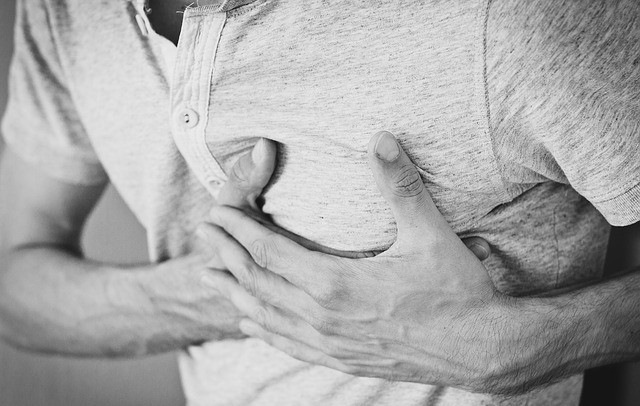Medical terms can be confusing and sometimes complicated, especially when you are not familiar with the terminologies. The human body is created and wired in such a way that it easily reacts and shows signals when something goes wrong. The bad news, however, is that it cannot diagnose itself.
In fact, a good number of times, the body sends out similar signals for different disease conditions, making it difficult for the layman to tell for sure what is wrong with us.
If you start getting the feeling of chest pain, nausea, shortness of breath and light-headedness, chances are that you will pass them as mere anxiety or stress, but what if it is not? Have you thought of the possibility of it being a serious health condition such as heart attack?
There seems to be a thin line between the signs and symptoms of a panic attack and that of a heart attack. Knowing the difference between the two and acting fast can save your life and that of others.
Here we would talk about panic attack, heart attack, and how to differentiate between the two.
What is a Heart Attack?
A heart attack occurs when the flow of the blood to the heart is interrupted. It could be as the result of a blockage to one or more of the coronary arteries. The narrowing of the coronary arteries as a result of the build-up of fatty plaques is a leading cause of heart attacks. This is known as atherosclerosis, coronary artery disease or ischemic heart disease (IHD), that the primary cause most heart attack cases. In an ECG reading, the blockage of the arteries could be complete as in the case of ST-elevation myocardial infarction (STEMI), or it could be partial as with non-ST elevation myocardial infarction (NSTEMI). You may need to undergo further diagnosis and testing to determine which one you have. The above phenomena are referred to as a heart attack. Use of tobacco and illicit drugs like cocaine can trigger heart attack as they can cause spasm of the coronary artery, which would, in turn, shut down blood flow to the myocardium (the heart muscle layer).What is a Panic Attack?
The onset of panic attacks is usually sudden, without warning and involves an extreme feeling of terror. Most times, the fear and terror experienced is not in proportion to the situation at hand and other times, they are not even related to the event happening around them. People with panic attacks are usually unable to predict the next episode, but in cases of a panic disorder, the panic attacks sure do reoccur. The main causes of panic attacks are not quite clear. They are likely to develop in association with major life changes such as getting the first job, getting married, getting fired from work and other life stressors. Some people are said to be more biologically vulnerable to develop panic attacks that are to say that the tendency to develop panic attacks runs in families.What are the Symptoms of a Heart Attack?
Now that we have looked at heart attack and the likely causes, let’s find out how does heart attack manifest? What signs and symptoms will the body exhibit to give the hint of a heart attack? A good number of people that have never experienced a heart attack before having this notion that the feeling of a heart attack is synonymous to that of chest pain, but that is not entirely true. According to Dr Maryann McLaughlin, a cardiologist at Mount Sinai, once said: “heart attacks do feel like very strong pain, but their onset is usually marked by a squeezing sensation and pressure that can go down each arm”. That feeling is comparable to the constricting feeling one has when one wears a tight bra. Sweating and nausea are also typical of heart attacks. In addition, heart attacks usually start slow and last longer, unlike panic attacks. Listed out here are the symptoms of a heart attack.- Shortness of breath.
- Chest pain that increases in intensity and reaches its peak after a few minutes.
- A constant constricting pain, pressure and aching in the chest region. The pain usually starts from the chest then, travels downwards the left arm, shoulders, jaw, neck, abdomen and the back region.
- A fluctuating intensity of pain that lasts for 10 minutes or more.
- The prickly feeling could extend to both arms, but in most cases, it is restricted to the left arm.
- Feeling of nausea and vomiting.
- Cold and sweating.
What are the Symptoms of a Panic Attack?
Due to overlapping or similar symptoms, panic attacks could be easily mistaken for a heart attack. A feeling of panic attacks are awful and can be scary. It is not pleasant at all, and people that suffer from it often feel like they might die. Different people might have different stories to tell about it, but there are some general principles that one could use to tell that it is a panic attack. One of the major ways one can distinguish them from heart attacks is the duration of time they last. While panic attack lasts for about 10 minutes, the heart attack starts slow and lasts longer. Here are some of the symptoms of a panic attack.- Sudden feelings of fear and terror for no apparent reason
- Increased heartbeat
- A stabbing pain in the chest that lasts for as short as 5 to 10 seconds
- A localized pain that could occur at rest
- Pain accompanying anxiety
- Sweating
- Shaking and trembling
- The feeling of loss of control
- A sense of detachment from one’s body or unrealistic feeling
- Abdominal cramps
- Tingling sensation in the hands
Overlapping Symptoms Between Panic Attack and Heart Attack
Some symptoms manifest in both conditions, Panic and Heart Attacks, making it difficult to distinguish between the two. Those common symptoms include:- pain in the chest
- sweating
- dizziness
- shortness of breath
- tingling sensation










The symptoms of a panic attack and a heart attack can be very similar, making it difficult to tell the difference. I’m guilty of such mix-up and it sends a shiver down my spine, but it does seem to be that having a heart attack can cause someone to panic, which may make the situation more confusing. Explaining it so well has never been more helpful.
Thanks a bunch.
Thanks, Seun for stopping by sharing your experience and we are glad you found the article resourceful.
Hello,
This was a very informative read on this topic. I have been concerned as I am getting older and heart disease runs in my family. I have had anxiety from work in the past few months and at one point it felt like I was having a heart attack, but after A trip to the ER, I was cleared with just a little anxiety. With the family history, I still wanted to do a little research and this article has cleared a few things up for me.
Thank you for this great information, it was helpful.
Thomas
Hi Thomas,
Thanks for the comment sharing your experience of a false alarm of a heart attack.
People commonly confuse with terms of Panic attack and anxiety attack too. Shani’s article on Difference Between a Panic Attack and Anxiety Attack will clarify a few interesting differences.
Please feel free to Contact Us if we can help you with anything.
Best wishes.